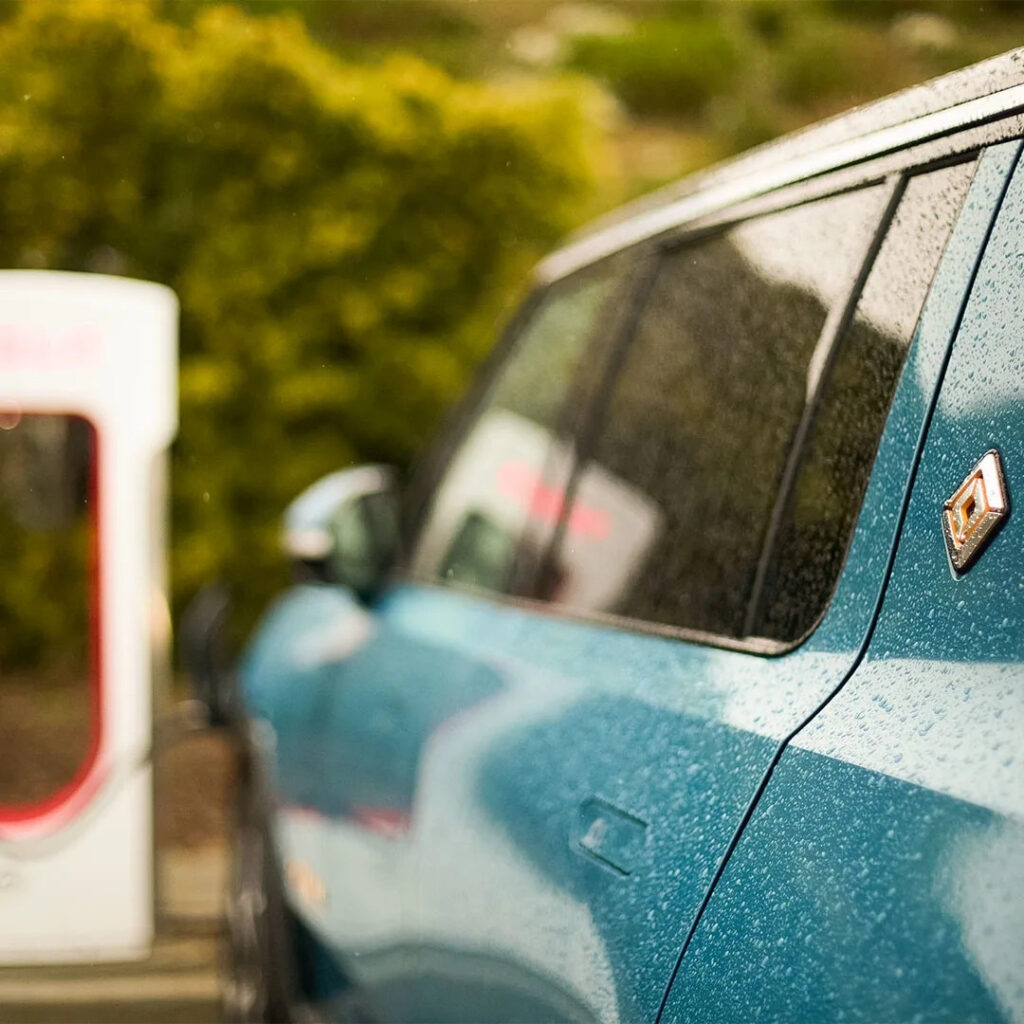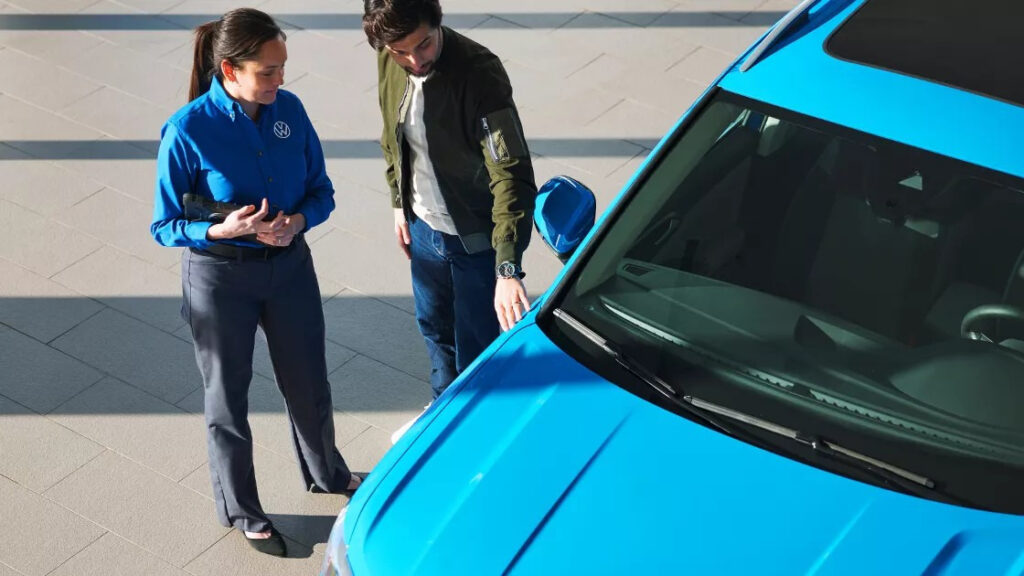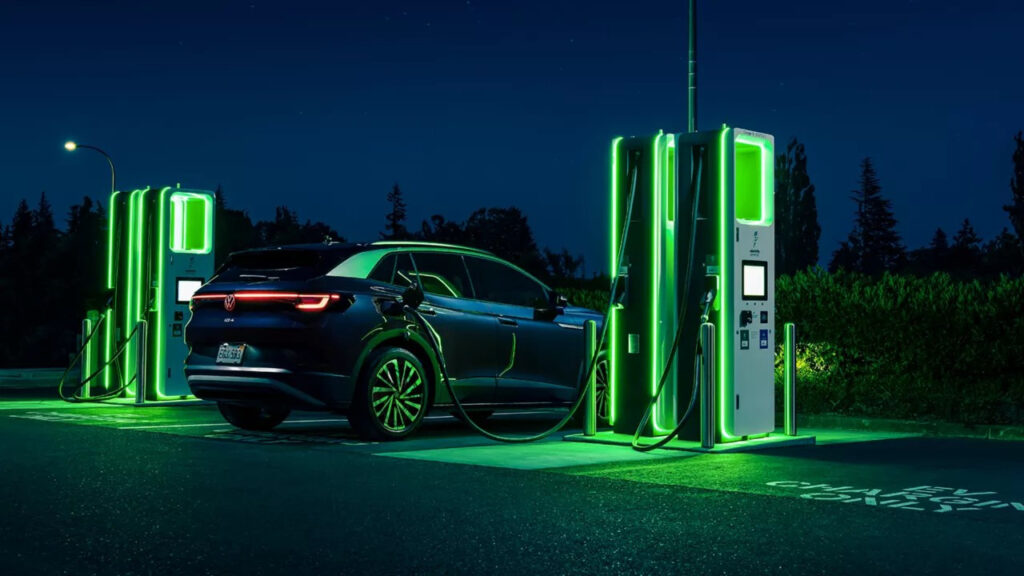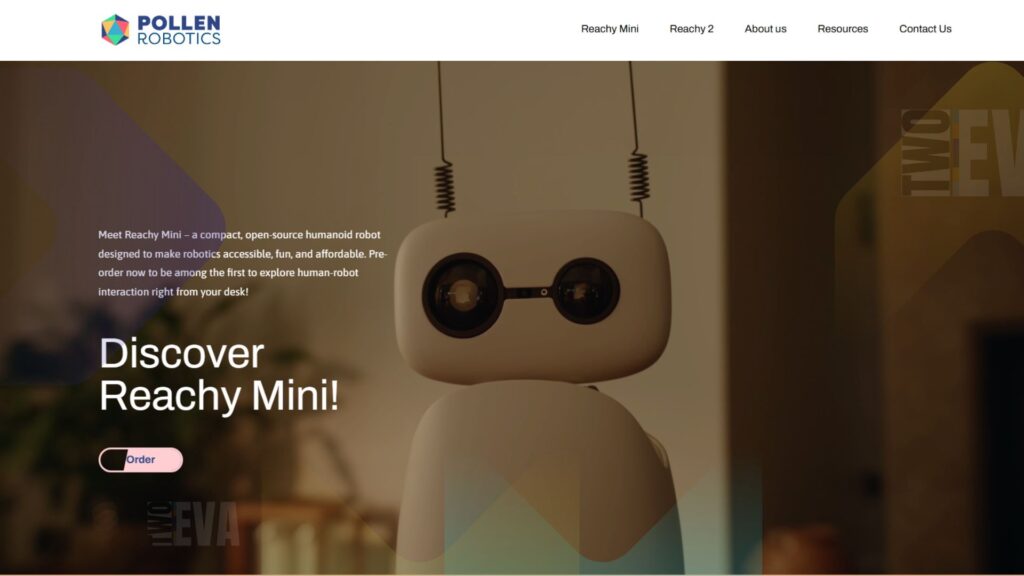In a bold move that’s sending shockwaves through the automotive industry, Volkswagen Group has announced plans to invest up to $5 billion in U.S. electric vehicle (EV) startup Rivian. This strategic partnership aims to accelerate both companies’ software development efforts and boost their competitiveness in the rapidly evolving EV market. But the burning question on everyone’s mind is: Will this hefty investment help make Rivian profitable and boost VW’s EV sales?
The Deal: A Closer Look
The investment will unfold in stages:
- An initial $1 billion through an unsecured convertible note
- Two additional $1 billion investments in Rivian’s stock in 2025 and 2026
- A $2 billion investment to establish a 50-50 joint venture
This joint venture will focus on developing next-generation electrical architecture and software technology for future EVs, integrating features like entertainment media, wireless connectivity, and autonomous driving capabilities.
Rivian’s Rocky Road

Rivian, despite its promising technology, has been grappling with production ramp-up and financial challenges. In Q1 2024, the company reported staggering losses of $38,000 per vehicle. As CFRA Research analyst Garrett Nelson points out, “While the announcement is a vote of confidence in Rivian, we think it does little to change the company’s operating issues and troubling cash burn rates, which have been around one billion dollars per quarter.”
Volkswagen’s Software Struggles
On the flip side, Volkswagen has been facing its own hurdles with software development. The company’s software subsidiary, CARIAD, has been plagued by delays, forcing subsidiaries Audi and Porsche to postpone new EV launches by up to two years.

A Win-Win Situation?
Rivian CEO RJ Scaringe is optimistic about the partnership’s potential. “Not only is this partnership expected to bring our software and associated zonal architecture to an even broader market through Volkswagen Group’s global reach, but it also provides Rivian with additional capital to fund our growth and scale our operations,” he stated.
This is exciting! Volkswagen Group CEO Oliver Blume and I are thrilled to announce the formation of a joint venture between our two companies. This partnership brings Rivian’s software and zonal electronics platform to a broader market through Volkswagen Group’s global reach and… pic.twitter.com/11XVNUo89J
— RJ Scaringe (@RJScaringe) June 25, 2024
For Volkswagen, this partnership could be the key to unlocking faster software development and enhancing its EV lineup’s competitiveness. VW Group CEO Oliver Blume expressed enthusiasm, saying, “We are running very well and very quick, quicker than we expected.”
The Road Ahead: Challenges and Opportunities
While the partnership shows promise, it’s not without risks. Integrating Rivian’s nimble, vertically integrated software approach with Volkswagen’s more traditional supplier-based model could prove challenging. As one analyst put it, it’s like “shoving a square peg in a round hole.”
Moreover, the joint venture’s success hinges on Rivian’s ability to address its financial and operational challenges. The additional capital from Volkswagen will undoubtedly help, but turning the company profitable will require more than just an injection of funds.
Market Impact and Financial Overview
To better understand the potential impact of this partnership, let’s take a closer look at the current market positions and financial standings of both companies:
| Metric | Volkswagen | Rivian |
|---|---|---|
| Market Capitalization | $64.8 billion | $18.2 billion |
| Annual Revenue (2023) | $318.2 billion | $4.4 billion |
| EV Sales (2023) | 771,000 units | 50,122 units |
| Profit/Loss (2023) | $16.7 billion profit | $5.4 billion loss |
| R&D Spending (2023) | $16.3 billion | $1.9 billion |
| Global Market Share (EVs) | 7.3% | 0.5% |
This data highlights the vast difference in scale between the two companies. While Volkswagen brings substantial financial resources and a global presence to the table, Rivian offers innovative technology and a fresh approach to EV design and manufacturing. The partnership could potentially combine Volkswagen’s scale with Rivian’s agility, creating a formidable force in the EV market.

Global EV Market Landscape
To fully appreciate the context of the Volkswagen-Rivian partnership, it’s crucial to understand the current global EV market landscape. Here’s a breakdown of EV sales by major automakers in 2023:
| Automaker | 2023 EV Sales | 2023 Market Share |
|---|---|---|
| Tesla | 1,200,000 | 58% |
| BYD | 800,000 | 15% |
| Volkswagen | 200,000 | 5% |
| Hyundai-Kia | 150,000 | 5% |
| Stellantis | 150,000 | 5% |
| BMW | 100,000 | 3% |
| Ford | 80,000 | 2% |
| GM | 70,000 | 2% |
| Others | 850,000 | 10% |
| Total | 3,600,000 | 100% |
This data reveals a complex and competitive EV market. Tesla and BYD dominate, accounting for 73% of global EV sales in 2023. Volkswagen, currently holding a 5% market share, faces stiff competition from emerging players like Hyundai-Kia and Stellantis. The partnership with Rivian could be seen as a strategic move to maintain and potentially increase this market share. This collaboration might provide Volkswagen with the technological edge and agility needed to navigate the challenging market conditions and capitalize on projected growth, with EVs expected to reach 20% market share in the U.S. and 25% in Europe for the full year 2024.
The data underscores the importance of innovation and strategic partnerships in the EV sector. With Tesla’s commanding lead and BYD’s strong position, particularly in the Chinese market, other automakers are under pressure to differentiate themselves and accelerate their EV strategies. Volkswagen’s investment in Rivian can be seen as a response to this pressure, aiming to combine Volkswagen’s manufacturing scale and global presence with Rivian’s innovative technology and agile approach.
Moreover, this partnership could help both companies address key challenges. For Volkswagen, it potentially accelerates software development and enhances its EV offerings, particularly in the North American market where it has been losing ground. For Rivian, it provides crucial capital and access to Volkswagen’s vast resources and supply chain, which could be pivotal in its journey towards profitability.
As the EV market continues to evolve rapidly, collaborations like the Volkswagen-Rivian partnership may become increasingly common, reshaping the competitive landscape and accelerating the global transition to electric mobility.
The Bigger Picture
This partnership is more than just a financial transaction; it’s a strategic move in the rapidly evolving EV landscape. As traditional automakers and startups alike vie for dominance in the electric future, collaborations like this could become increasingly common.
The first vehicles developed from this joint venture are expected to hit the market in the second half of the decade. With Rivian’s innovative technology and Volkswagen’s global reach, this partnership has the potential to reshape the EV market.
Long-term Implications
The success of this partnership could have far-reaching implications for both companies:
- For Rivian: Access to Volkswagen’s vast resources and global supply chain could significantly reduce production costs, potentially accelerating Rivian’s path to profitability. The partnership also provides a lifeline of capital, crucial for Rivian’s ambitious growth plans.
- For Volkswagen: Rivian’s advanced software and electrical architecture could help VW leapfrog competitors in the race to develop next-generation EVs. This could be particularly important in the North American market, where VW has been losing market share.
- For the EV Market: This collaboration could set a new standard for software-defined vehicles, potentially forcing other manufacturers to accelerate their own development efforts or seek similar partnerships.
As the automotive world watches closely, only time will tell if this $5 billion gamble will pay off, making Rivian profitable and boosting VW’s EV sales. One thing is certain: the race to dominate the electric vehicle market just got a lot more interesting.
















